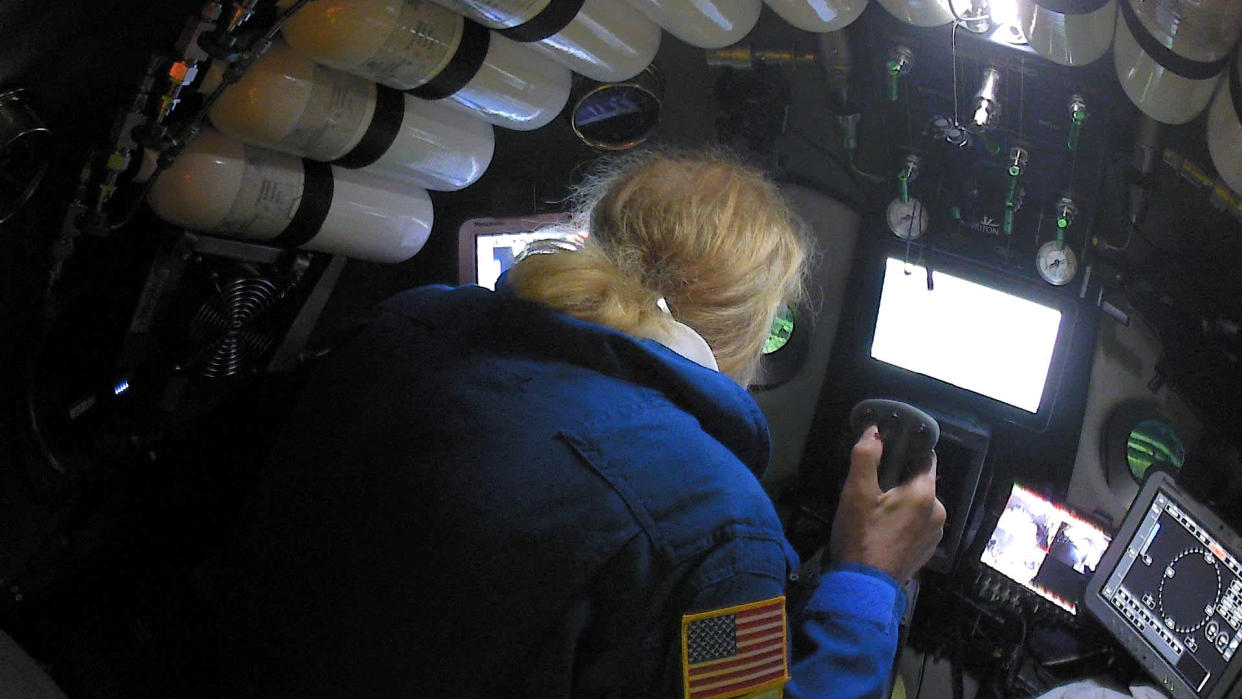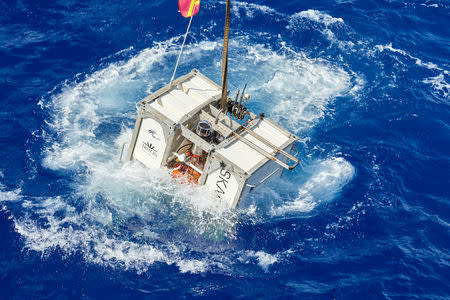Deepest-ever manned dive ‘finds plastic bag at bottom of Mariana Trench’

An American diver has found a plastic bag nearly seven miles beneath the surface of the ocean, during a record-breaking dive.
Undersea explorer and investor Victor Vescovo found signs of plastic pollution on a dive in a custom-built submersible in the Mariana Trench, the deepest point in the world’s oceans.
Vescovo beat a record set by film director James Cameron, and used robotic landers to explore the area beneath the sea.
Vescovo said, ‘It is almost indescribable how excited all of us are about achieving what we just did.
Read more from Yahoo News UK:
Motorists pull passengers from burning plane wreckage
Tories in FIFTH place according to EU elections poll
Transgender Lotto winner dies 18 months after £4m win
‘This submarine and its mother ship, along with its extraordinarily talented expedition team, took marine technology to a ridiculously higher new level by diving – rapidly and repeatedly – into the deepest, harshest, area of the ocean.’

A previous dive found a plastic bag 36,000 feet below the surface, also at the ocean’s deepest point, the Mariana Trench.
Most of the plastic found at the bottom of the sea by divers (89%) has one thing in common, the Deep Sea Debris Database reported: it’s waste such as plastic bottles and bags, designed to be used just once, then thrown away.
Tests by Newcastle University researchers found that sea creatures living in the deepest reaches of the sea had fragments of plastic in their stomachs and muscles.

 Yahoo News
Yahoo News 

